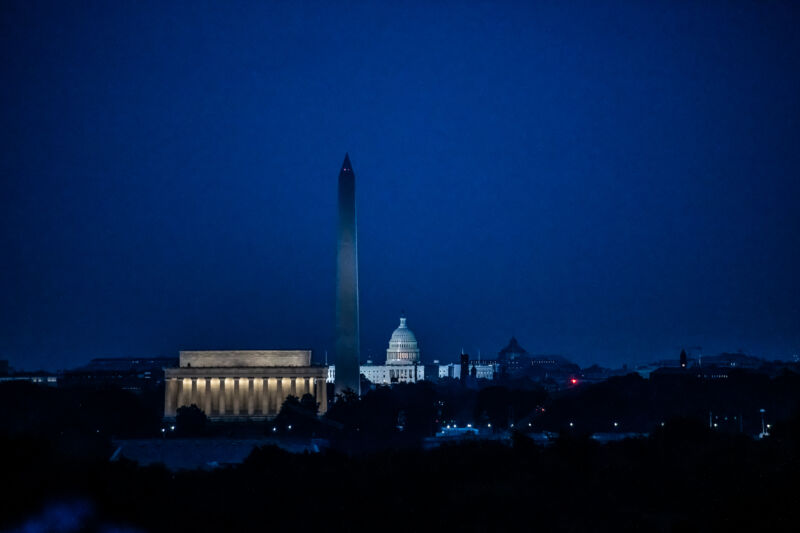
As was threatened, so has it come to pass: President Donald Trump has vetoed funding for the US military because the massive defense spending bill did not include a provision to repeal Section 230.
The National Defense Authorization Act authorizes $740 billion in defense spending for the upcoming government fiscal year. The NDAA usually moves through Congress with broad bipartisan support, and this year’s is no exception. Both chambers supported the bill by wide, veto-proof margins—the House approved by a vote of 335 to 78, and the Senate approved it 84 to 13.
Trump, however, said in early December he would veto the bill if it did not include an outright repeal of Section 230, and today, with the bill on his desk, he followed through on that threat.
“No one has worked harder, or approved more money for the military, than I have,” Trump said in a statement about the veto, claiming without evidence that the military “was totally depleted” when he took office in 2017. “Your failure to terminate the very dangerous national security risk of Section 230 will make our intelligence virtually impossible to conduct without everyone knowing what we are doing at every step.”
That’s not at all how this works
Section 230, however, has nothing to do with military intelligence. At its broadest, the short snippet of law basically does two things. First, it grants Internet service providers, including online platforms, broad immunity from being held legally liable for content third-party users share. Second, it grants those same services legal immunity from the decisions they make around content moderation.
It’s that content moderation bit that Trump really doesn’t like. He’s been in a protracted feud with Twitter, his platform of choice, since the site first appended a mild fact-checking link to a tweet of his containing election misinformation in May.
Days later, Trump issued an executive order directing various federal agencies to limit social media’s “unchecked power to censor, restrict, edit” or otherwise manipulate user content. Following the executive order, the Federal Communications Commission began a Section 230 rule-making procedure, and the Justice Department eventually sent a proposed rewrite of the law to Congress for its consideration. (Congress did not consider it.)
Trump continued to rail publicly against Section 230 throughout the summer and fall. As rhetoric continued to heat up into and past the November election, both Twitter and Facebook expanded their fact-checking policies for information related to voter suppression and election disinformation. In short, the more Trump claimed without evidence that all mail-in voting is fraudulent (it’s not) or that President-elect Joe Biden’s somehow “stole” the election (he won fairly), the more fact-checking labels Twitter appended to his posts.
So now what?
Congressional leaders, anticipating the veto, already scheduled veto override votes—the House on December 28, and the Senate on December 29.
“My intention was and is to ensure the Senate continues fulfilling our obligation to the men and women of our armed forces,” Senate Majority Leader Mitch McConnell (R-Ky.) said at the time. “I hope the president will not veto this bill.”
However, because we cannot simply squeak through the few waning days of 2020 without at least one more dumpster fire, it appears that Senate Republicans may or may not be particularly inclined to fall in line behind McConnell. Within a half-hour of the veto, give or take, Sen. Lindsey Graham (R-S.C.) tweeted, “Congress should vote to repeal Section 230 as requested by President [Trump]. I will not vote to override presidential veto unless effort is made to wind down Section 230.”
https://arstechnica.com/?p=1731780

